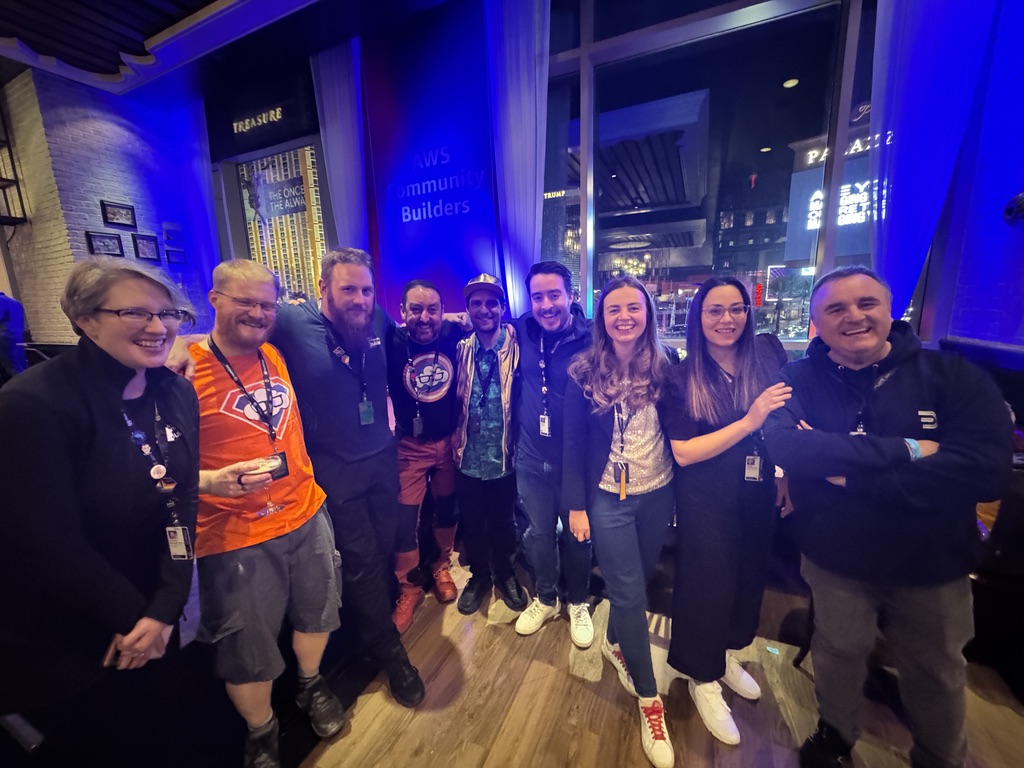
Logicata AI Bot
May 7, 2025
The Logicata AI Bot automatically transcribes our weekly LogiCast AWS News Podcasts and summarises them into informative blog posts using AWS Elemental MediaConvert, Amazon Transcribe and Amazon Bedrock, co-ordinated by AWS Step Functions.
In the latest episode of LogiCast, the AWS News podcast, host Karl Robinson and co-host Jon Goodall were joined by special guest Renato Losio, an AWS Data Hero, to discuss recent developments in the AWS ecosystem. The conversation covered a range of topics, from Lambda pricing changes to new security features and industry trends.
Lambda Logging Changes
The first topic of discussion was the introduction of tiered pricing for Amazon CloudWatch logs and additional logging destinations for AWS Lambda. Jon Goodall expressed that while the tiered pricing is less interesting, the additional logging destinations are a significant improvement.
According to Jon, “The tiered pricing is less interesting, to be really honest, than the additional logging destinations.” He explained that the price reduction would only be noticeable at a large scale, with significant benefits kicking in after 50 terabytes of logs per month.
The more exciting aspect, in Jon’s opinion, is the ability to send logs directly to S3 or Kinesis Data Firehose. This change allows users to bypass CloudWatch logs entirely, potentially reducing costs and enabling easier integration with third-party logging tools.
Renato agreed with Jon’s assessment, stating, “The cool part is the new two destinations, even just the S3, even without doing anything fancy.” He highlighted that many teams might find it easier to work with S3 APIs and process data using familiar tools like Athena.
Lambda Init Phase Billing Standardization
The podcast then moved on to discuss AWS Lambda’s standardization of billing for the init phase. This change means that the init phase, which was previously not chargeable for most runtimes, will now be billed across all Lambda functions.
Jon expressed his displeasure with this change, saying, “I just don’t like having to pay for something that I didn’t have to pay for previously.” He acknowledged that some users were abusing the free init phase for compute, but argued that AWS, as a billion-dollar company, should be able to tolerate some level of user creativity.
Renato shared a conflicted view on the matter. While he appreciated the standardization, he noted, “I don’t really like price increases, and that is at the end is a price increase.” He also expressed concern about the lack of clarity in the announcement, suggesting that AWS could have been more transparent about the change being a price increase.
Both experts agreed that while the impact might be minimal for most users, it’s essential to consider the potential effects at scale and across different scenarios.
Just-in-Time Node Access with AWS Systems Manager
The conversation then shifted to a new feature introduced by AWS: just-in-time node access using AWS Systems Manager. This feature aims to enhance security by providing temporary, approved access to nodes instead of standing access.
Jon was particularly excited about this development, describing it as “really, really, really cool.” He explained that the feature addresses the problem of standing access to servers, especially in large enterprises with complex access requirements.
The new system allows for auto-approval based on policies or manager approval through integrations with tools like Slack. Jon emphasized the benefits for organizations with strict security requirements, such as banks and financial institutions.
However, both Jon and Renato expressed concerns about the pricing model. Losio pointed out, “It costs $10 per node per month. So that’s gonna add up.” This pricing structure might make the feature less attractive for smaller organizations or those with a large number of nodes.
Malware Protection with AWS Transfer Family and GuardDuty
The podcast also touched on an article discussing how to use AWS Transfer Family and GuardDuty for malware protection. Renato, while praising the article’s technical content, criticized its title and introduction for lacking clarity.
He stated, “The normal user on AWS has no idea what you’re talking about reading the title.” Renato appreciated the solution architecture and worked examples provided in the article but suggested that the presentation could be improved to make it more accessible to a broader audience.
Jon agreed with the value of the article but questioned why AWS doesn’t offer a managed quarantine solution, saying, “Why do I have to build this myself? Why can’t you do that for me?”
AI Data Center Boom and Industry Trends
The final topic of discussion was an article from CNBC about the apparent slowdown in data center expansion by major tech companies, including AWS and Microsoft. Both Jon and Renato expressed skepticism about the significance of this news.
Jon stated, “I’m not worried,” explaining that spending on data centers is cyclical and often influenced by factors such as stock price performance and quarterly reporting. He suggested that the reported slowdown might be more about reshuffling resources than a genuine reduction in capacity.
Renato echoed this sentiment, questioning whether there was really news in the report. He pointed out that cloud providers constantly adjust their data center strategies based on various factors, including energy costs and regional demands.
Both experts agreed that even if there is a temporary slowdown in data center expansion, it doesn’t necessarily indicate a decline in the overall growth of cloud computing or AI-related services.
Conclusion
This episode of LogiCast provided valuable insights into recent AWS developments and industry trends. From changes in Lambda pricing to new security features and discussions about data center expansion, the conversation highlighted the dynamic nature of the cloud computing landscape.
As always, it’s crucial for AWS users and industry professionals to stay informed about these changes and consider how they might impact their operations and strategies moving forward.
This is an AI generated piece of content, based on the Logicast Podcast Season 4 Episode 18.





